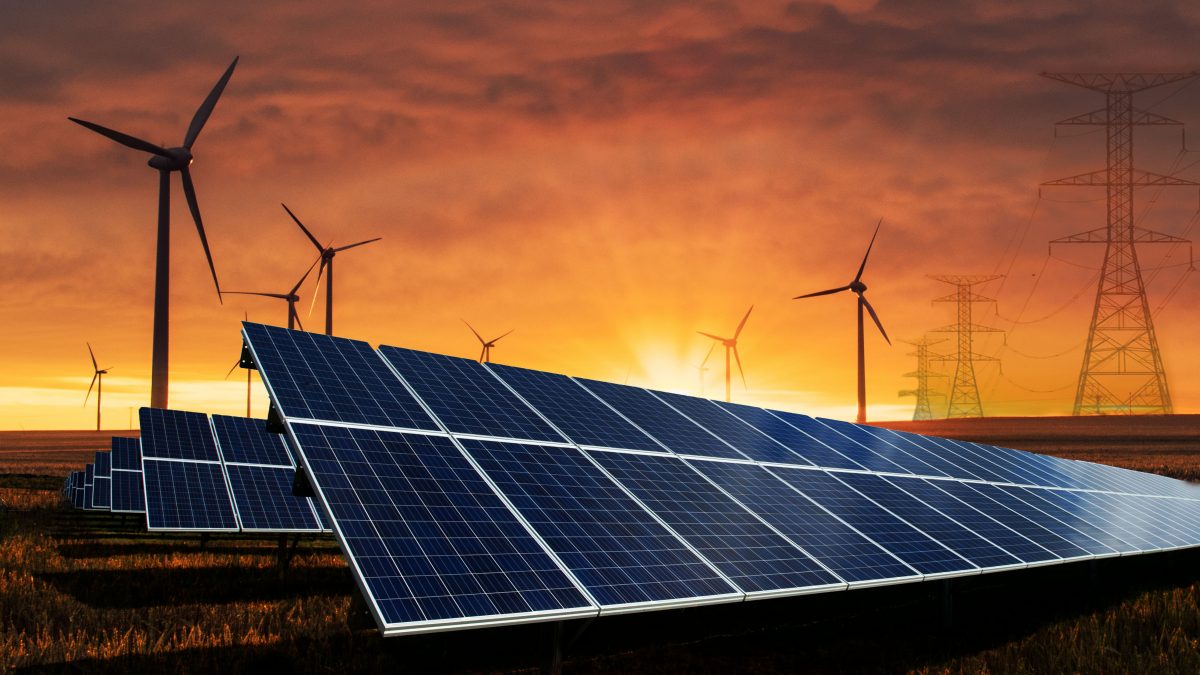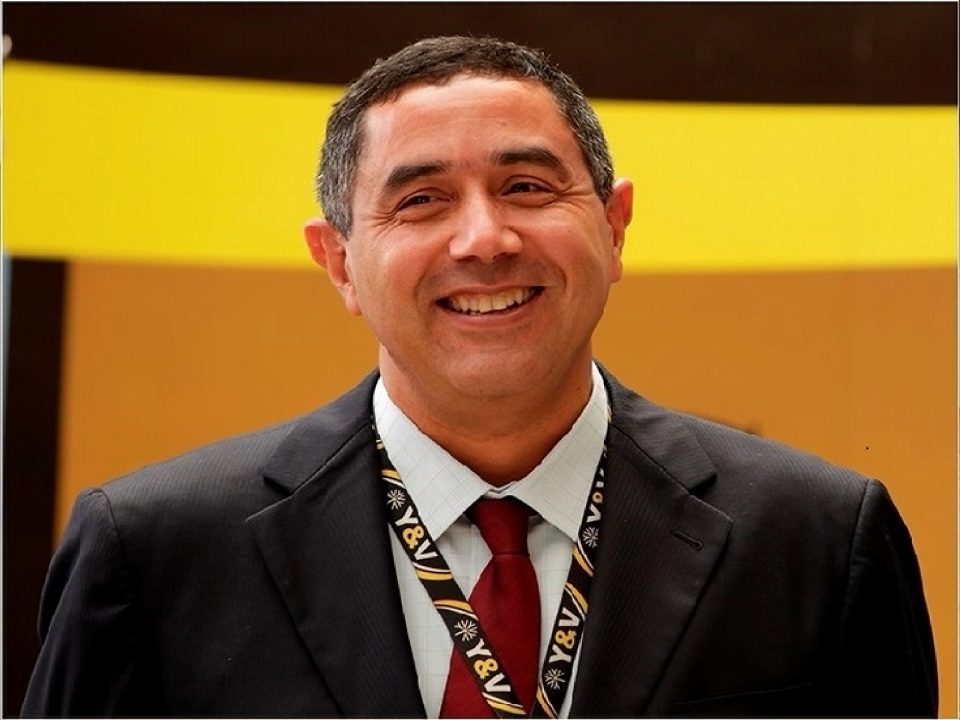
The oil province of Guyana-Suriname
January 21, 2021
We have more than a decade experience in remote operation
March 17, 2021The production and use of clean energy by hydrocarbon companies

The speed of the energy transition in our society is a fact. It is defined as the transition to a sustainable economy through the production and use of increasingly clean, renewable energies, with energy efficiency that leads to decarbonization and sustainable development.
However, within the broad spectrum that this can cover, we will focus on what this process means for hydrocarbon companies. Currently, we find that the major players in this market: the North American Chevron and Exxon Mobil, the Anglo-Dutch Shell, the British BP and the French Total, among others, are taking firm steps to give their contribution in this direction.
The reasons are diverse and are based both on business opportunities, responsibility for the environment and society, as well as consumer demands and even self-survival. Giving a review of their positions, actions and plans, let's take a walk through each of them:
Chevron, through its CEO Mike Wirth, states:
“Global energy demand and stakeholder expectations for a low-carbon future have never been higher, and Chevron's commitment to sustainability has never been stronger”.
Mike Wirth also highlights the reduction of carbon levels and the use of renewables and the operations of this North American company while inserting into new technologies. In Chevron's 2019 sustainability report (1), four goals for reducing greenhouse gases by 2023 stand out:
● From 5% to 10% for crude oil,
● From 2% to 5% for gas,
● From 20% to 25% in methane gas and a
● 30% in terms of gas flaring (Chevron world leader)
In addition, it is committed to the development of the most important CO2 capture projects in Australia and Canada and to increasing the use of renewable energy in its operations, in addition to other initiatives in this direction, such as reducing personnel to become more competitive.
ExxonMobil is in the same vein. Its CEO, Darren Woods, notes:
“Increased energy demand will impact emission levels, underscoring the need to continue reduction efforts to mitigate the risks of climate change. ExxonMobil is facing this dual challenge through research and development of a new generation of technology, with new products that help consumers reduce their emissions, with the improvement in energy efficiency and with advances in the implementation of public policy solutions"
For this, ExxonMobil in its Blog highlights (2):
● Reduction to 15% of Methane Gas emissions from 2016 to 2020
● Shows as an achievement the reduction of gas flaring by 25%
● Works on technologies for CO2 capture, cancellation and disposal
● Decreases 1600 jobs in Europe to increase its levels of competitiveness
For his part, Ben van Beurden, CEO of the Anglo-Dutch Royal Dutch Shell, declares:
"If society wants to achieve net zero emission and we want to be really an integral part of society, then we need to achieve net zero emission as well".
Consequently, with this guideline and in its commitment to make energy more accessible to society and following the guidelines of the 2016 Paris Agreement, Royal Dutch Shell highlights the following in its sustainability report (3):
● Low-cost capture of 5 MM tons of CO2 through the Quest Project in Canada
● Research programs and collaborative knowledge projects on carbon capture and storage
● Increase in low carbon means of transport (LNG, biofuel and hydrogen)
● Entry into the renewable energy market with more than 1000 MW of wind generation in the United States and Europe, in addition to the production of ethanol based on sugar cane in Brazil
● Reduction of 9,000 jobs in its workforce to support its energy transition process towards renewable energies (4) with more competitive costs.
In February of 2020, the British BP, through its CEO, Bernard Looney, expressed (5) the organization's commitment to reduce greenhouse gas emissions by 40% by 2030 and zero (net) emissions by 2050 But he also stated: "The budget for a zero carbon world is finite and is running out quickly, we need a rapid transition to net zero emissions", and about this he confirms on his website:
“Our purpose is to reimagine energy for people and our planet. We want to help the world reach the zero (net) emission goal and increase people's quality of life. We aim to dramatically reduce carbon in our operations and our production, and grow as a low-emission business in our products and services".
Consequently, BP decided (6):
● Reduce your capital investment in macro projects to lower operating costs and increase value. Also redirect your production towards high margin
● Work on operational efficiencies such as decentralization, new technologies and digitization to reduce administrative costs
● Disincorporate assets and redirect effort to low-emission investments, which at its discretion will reduce cost and risk
● Develop 50 Gw renewable energy generation projects
● Invest in Finite Resources, a carbon offset company
● Offshore wind generation in strategic partnership with Equinor, among other initiatives
The French Total is not far behind, with forceful actions and plans in this direction. Its Chairman and CEO, Patrick Pouyanne, declares (7):
“Together, we will accelerate the energy transition to create a carbon neutral society by 2050”.
In this line of action, Total plans to diversify its energy production:
● In 2015 its production was divided into 66% crude oil, 33% gas and 1% electricity
● For 2030 it is projected 35% in the production of crude oil, 50% in that of gas and 15% in that of electricity (particularly renewable)
Acting accordingly:
● Expands its presence in the LNG market with the Arctic LNG 2 projects in Russia, Mozambique LNG and with the Dhamara Regasification Plant in India
● Creates a Biogas and Hydrogen business unit, accompanied by the opening of 83 hydrogen service stations in Germany
● Generates renewable energies reaching 6,500 MW by 2020 through wind projects (France and the United Kingdom) and solar projects (South Korea, Spain and Qatar)
● A portfolio of 9 million gas and electricity customers in France, Spain, Belgium and the United Kingdom
● It will suspend sales of fuel oil for electricity generation in 2025
● Promote the shift from oil-based heating to electricity and natural gas
● Establishes a Joint Venture with PSA Group, to manufacture electric vehicle batteries
● Obtains the concession of 20,000 electric vehicle charging stations in the Netherlands
● Agreement with CMA CGM to replace fuel oil with LNG fuel bunker.
● Invests in carbon capture and storage, as well as research and development programs in negative emissions technology such as direct capture
● Agroforestry projects, reforestations and forest conservation in South America
● Alliances with Equinor and Shell for the decarbonization of industries in Norway
● Partnership with governments and consumers for the cause of carbon neutrality through pricing policies that discourage the use of carbon
For its part, the Arab giant Saudi Aramco, founded in a region characterized by its wealth of oil, gas, wind and sun, announced its contributions to the sustainable energy goal established by the United Nations for 2030. It proposes a “rapid turn towards diversification of the energy supply ”(8), creating a“ hub ”in its renewable energy capacity, increasing the contribution of wind and solar energy in its business portfolio, releasing liquid fuels in its operations, and investing in the supply chain. Value of renewable energies ”. Its CEO and president Amin Nasser, acknowledged:
“The world faces an incredible climate challenge and we need a bold response to match”.
Saudi Aramco promotes the concept of the circular carbon economy, which means balance and better use of all possible options for mitigating climate change (reduction, reuse, removal, recycling) and, especially, that from fossil hydrocarbons. Its initiatives include:
● Development of transport technologies aimed at increasing the efficiency of the performance of engines and the fuel they use, among which are:
_ Improvement in internal combustion engines and their fuels
_ Capture of mobile carbon in vehicles
_ Change from diesel to gasoline in compression ignition engines
_ Ignition efficiency of gasoline engines (Turbulent Jet Ignition)
_ Development of "opposite piston" engines
● Crude to Chemical, with the aim of using oil in petrochemical processes
● Carbon-free hydrogen from crude oil (blue hydrogen)
● Goal to be the leaders in carbon capture for storage and reuse
● Development of advanced materials, based on crude oil for various industrial uses
● Use of solar energy in Non-Conventional Gas Projects, such as:
_ Gas supply to the industrial city of Waad Al Shammal
_ The Jafurah and Sur Ghawar gas field operations
Finally, and much closer to our regions, in Colombia - threatened by a decline in fossil hydrocarbon reserves-, the energy transition process is an opportunity to reduce dependence on oil and gas and work in favor of the use of clean energies. In this sense, Felipe Bayon, CEO of Ecopetrol, the Colombian hydrocarbons company, declares:
“We have set the goal of reducing 20% of emissions by 2030. We are committed to reducing the impacts of our operations, working with the authorities for a constant improvement in the quality of the air we breathe, promoting good environmental practices and promote the socioenvironmental development of the territories where we are present”.
Ecopetrol, in its reports (9) to investors from September 2020, confirms its commitment to the energy transition, highlighting:
● Investments in gas projects in the Andean foothills, Caribbean offshore and existing fields
● Energy efficiency and decarbonisation through:
_ 20% reduction in emissions by 2030
_ Move from a renewable energy portfolio from 51 MW to 300 MW by 2022
_ 3% increase in energy efficiency by 2022
_ Zero gas burning by 2030
_ Solutions based on CO2 capture
Finally, the Executive Director of the International Energy Agency, Fatih Birol expresses his optimism in an energy forum at MIT (10), highlighting the following aspects:
● The increase in renewable energies, especially solar energy, which has significantly reduced its cost
● Low interest rates in the financial market
● Increased government commitment to clean energy and decarbonization
● The step forward of hydrocarbon companies in favor of clean energies, with greater investments and business strategies in this direction, forced by their citizens, governments and shareholders and also aiming to strategically position themselves for this new stage.
● Increased innovation in energy storage and special electrolysis
As you will see, the statements, plans and actions of the hydrocarbon companies and their leaders in favor of the energy transition, and in essence the decarbonization of their operations, are going steady. It is still difficult to predict whether the goals to reduce the effects of greenhouse gases can be achieved, as established in the Paris Agreement signed in 2015, for the next few years and specifically that of “maintaining the increase in global average temperature well below 2 ° C relative to pre-industrial levels, and continue efforts to limit such temperature rise to 1.5 ° C relative to pre-industrial levels, recognizing that this would significantly reduce the risks and effects of change climate ”(11).
However, we live a momentum in society and the hydrocarbon sector that is already unstoppable, which means commitments and investments by the main players in the hydrocarbon market for the production of clean energy, emission reduction, energy efficiency and use of its diverse range of products. This leads to business opportunities and the reinvention of the pre-established models by these companies and their entire chain of supply of goods and services
Welcome the new times, welcome the new challenges.
References:
1 Chevron Corporate report sustainability 2019 - https://www.chevron.com/-/media/shared-media/documents/2019-corporate-sustainability-report.pdf
2 ExxonMobil Perspective Blog - https://energyfactor.exxonmobil.com/perspectives/annual-shareholder-meeting-address/
3 Shell Climate Change and Energy Transition - https://www.shell.com/sustainability/environment/climate-change.html
4 La Republica, Colombia: “Shell suprimirá hasta 9.000 empleos en su transición hacia energía de bajas emisiones”
5 British Petroleum Web Page - https://www.bp.com/en/global/corporate/news-and-insights/reimagining-energy.html
6 Brittish Petroleum Corporate News - https://www.bp.com/en/global/corporate/news-and-insights/reimagining-energy/five-questions-answered.html
7 Total,Getting to Net Zero Report - https://www.total.com/sites/g/files/nytnzq111/files/documents/2020-10/total-climate-report-2020.pdf
8 Aramco Magazine - https://www.aramco.com/en/magazine/elements/2020/renewables-not-that-new
9 Ecopetrol, Presentación a Inversionistas 2020 - https://www.ecopetrol.com.co/wps/portal/!ut/p/z0/04_Sj9CPykssy0xPLMnMz0vMAfIjo8zi_R09LAwtTAz8LYwsLAwCLQOczY1dPb2M3Uz1C7IdFQEJBo8t/
10 MIT Energy Initiative
Y&V: 35 years of successful experience in engineering and construction, assuming transformation as an inspiring challenge to add value in challenging projects that contribute to the growth and sustainable development of the countries of the continent The production and use of clean energy by hydrocarbon companies.
The speed of the energy transition in our society is a fact. It is defined as the transition to a sustainable economy …



